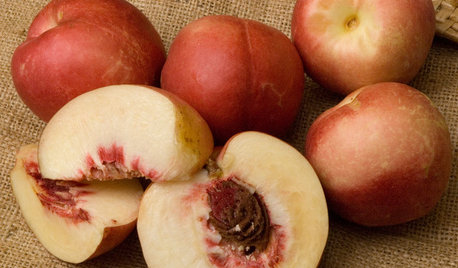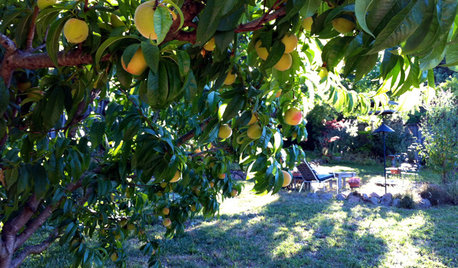How to prevent fruit flies?
ange2006
10 years ago
Related Stories

MOST POPULARHow to Get Rid of Those Pesky Summer Fruit Flies
Learn what fruit flies are, how to prevent them and how to get rid of them in your home
Full Story
WINDOW TREATMENTSA Surefire Way to Prevent Sun Damage Indoors
Why let light ruin your furniture, floors and artwork, when the solution could be as simple as applying high-quality window film?
Full Story
GARDENING AND LANDSCAPINGCrazy for Fruit Trees
Whether a single citrus or a mini apple orchard, even the smallest landscape space can bear deliriously delicious fruit
Full Story
EDIBLE GARDENSHow to Grow 10 Favorite Fruit Trees at Home
Plant a mini orchard in fall, winter or early spring to enjoy fresh-off-the-tree fruit the following year
Full Story
GARDENING GUIDESGreat Design Plant: Grow Blueberries for Their Fruit and More
Eastern gardeners should consider growing blueberry plants for their delicious fruits, bee-friendly spring blooms and brilliant fall foliage
Full Story
EDIBLE GARDENSGrow Plum Hybrids for Your Favorite Fruit Flavors
Plums are cozying up with apricots, peaches and even cherries — here’s how to grow these hybrids for the best aspects of each
Full Story
RUSTIC STYLEHouzz Tour: A Fly Fisher’s Dream Along the Yellowstone River
This new home combines local ranch style with contemporary elements, including energy efficiency
Full Story
WINDOWSFlying Colors: Stained Glass Through the Ages to Today
Ancient palaces sported it. Monks were distracted by it. But today's stained glass designs may be more glorious than ever
Full Story
EDIBLE GARDENSHow to Grow Your Own Peaches and Nectarines
Make gardening a little sweeter with these juicy fruits, which you can eat after plucking or preserve for later
Full Story
CONTRACTOR TIPS10 Things to Discuss With Your Contractor Before Work Starts
Have a meeting a week before hammers and shovels fly to make sure everyone’s on the same page
Full Story





pcindc
iLoveLawn
Related Professionals
Foothill Ranch Landscape Architects & Landscape Designers · New Mexico Landscape Architects & Landscape Designers · Sahuarita Landscape Architects & Landscape Designers · Surprise Landscape Contractors · Tempe Landscape Contractors · Maple Valley Landscape Contractors · Bainbridge Island Landscape Contractors · Bristol Landscape Contractors · Harvey Landscape Contractors · Hawaii Landscape Contractors · Holland Landscape Contractors · Miller Place Landscape Contractors · Brownsville General Contractors · Jackson General Contractors · Noblesville General Contractorsarmoured
pcindc
11otis
ange2006Original Author
sbryce_gw
armoured
ange2006Original Author
11otis
equinoxequinox
ange2006Original Author
sjensen2533
Jasdip
11otis
Jasdip
chickencoupe
caydance
equinoxequinox